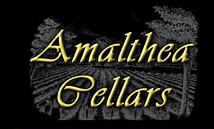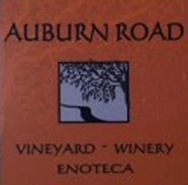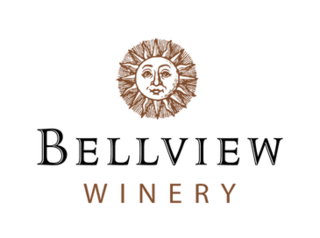Related Research Articles

The production of distilled spirits in New Jersey has not been a large industry in the state. Strict alcoholic beverage control laws in place during and after Prohibition (1919–1933) prevented the industry from growing for almost a century. In 2013, the state passed a law creating a craft distillery license. and issued the first new distillery license since Prohibition to Jersey Artisan Distilling
Alba Vineyard is an American winery in the Finesville section of Pohatcong Township in Warren County, New Jersey. Formerly a dairy farm, the vineyard was first planted in 1980, and opened to the public in 1982. Alba is one of the larger winegrowers in New Jersey, having 42 acres of grapes under cultivation, and producing 11,000 cases of wine per year. The winery is named for the Italian word alba which means "dawn," the time of day when the original owner first conceived of producing wine.

Amalthea Cellars is a winery in the West Atco section of Winslow in Camden County, New Jersey. The vineyard was first planted in 1976, and opened to the public in 1981. Amalthea has 10 acres of grapes under cultivation, and produces 5,000 cases of wine per year. The winery is named after Amalthea, a moon of Jupiter, reflecting the owner's scientific background and love of mythology.

Auburn Road Vineyards is a winery in Pilesgrove Township in Salem County, New Jersey. The vineyard was first planted in 2004, and opened to the public in 2007. Auburn Road has 19 acres of grapes under cultivation, and produces 4,200 cases of wine per year. The winery is named for road near where it is located.

Wagonhouse Winery is a winery in South Harrison Township in Gloucester County, New Jersey. Wagonhouse's original vineyard was first planted in 2004 in Mickleton, also in Gloucester County. The winery began sales of its wine in 2005, and opened a tasting room in South Harrison in 2011. Wagonhouse has 10 acres of grapes under cultivation, and produces 7,000 cases of wine per year. The winery is named for an old wagon house that is on their farm.

Bellview Winery is a winery in the Landisville section of Buena in Atlantic County, New Jersey. A family produce farm since 1914, the vineyard was first planted in 2000, and opened to the public in 2001. Bellview has 40 acres of grapes under cultivation, and produces 8,000 cases of wine per year. The farm was named by the great-grandfather of the current owner, and is of Italian origin.

Brook Hollow Winery is a winery in the Columbia section of Knowlton Township in Warren County, New Jersey. Brook Hollow's original vineyard was first planted in 2002, and opened to the public in 2007. In 2013, the winery moved to a new location in Columbia. Brook Hollow has 8 acres of grapes under cultivation, and produces 1,050 cases of wine per year. The winery is named for a hollow created by Yards Creek, a stream that runs through the farm's original location.

Plagido's Winery is a winery located in Hammonton in Atlantic County, New Jersey. A family produce farm since the late 19th century, the vineyard was first planted in 1999, and opened to the public in 2007. The winery was originally known as "Placido's Winery," but the name was changed in 2008 because of winery with a similar name exists in Tuscany. Plagido has 14 acres of grapes under cultivation, and produces 4,200 cases of wine per year. The winery is named after the owner's great-grandfather, who immigrated from Italy in the late 19th century, and started a farm in Hammonton.

Chestnut Run Farm is a winery in Pilesgrove Township in Salem County, New Jersey that produces Fuji apple and Asian pear wines. The apple and pear trees were first planted in 1986 as part of a specialty produce farm. Chestnut Run began sales of its wine in 2007, and opened a tasting room in 2012. Chestnut Run has 5 acres of fruit trees under cultivation, and produces 700 cases of wine per year. The winery is named for the Chestnut Run, a stream that borders the farm.
Monroeville Vineyard & Winery is a winery in the Monroeville section of Upper Pittsgrove Township in Salem County, New Jersey. The vineyard was first planted in 2010, and opened to the public in 2012. Monroeville has 4 acres of grapes under cultivation, and produces 1,800 cases of wine per year from New Jersey and Chilean grapes. The winery is named for the community where it is located.

Jessie Creek Winery is a winery in the Dias Creek section of Middle Township in Cape May County, New Jersey. The vineyard was first planted in 2002, and opened to the public in 2012. Jessie Creek has 5 acres of grapes under cultivation, and produces 1,200 cases of wine per year. The winery's name is an amalgamation of Jessie, the name of the former owner's mother, and Dias Creek.
DeMastro Vineyards is a winery in the Vincentown section of Southampton in Burlington County, New Jersey. DeMastro has 31 acres of grapes under cultivation, and produces 7,000 cases of wine per year. The winery was incorporated in 1990. The winery's name is an amalgamation of the owners' surnames.

DiBella Winery is a winery in Woolwich Township in Gloucester County, New Jersey. A family produce and grain farm since 1925, the vineyard was first planted in 2002. DiBella began sales of its wine in 2010, and opened a tasting room in 2012. DiBella Winery has 4 acres of grapes under cultivation, and produces 250 cases of wine per year. The winery is named after the family that owns it.

DiMatteo Vineyards is a winery located in Hammonton in Atlantic County, New Jersey. Formerly a family produce farm, the vineyard was first planted in 2000, and opened to the public in 2002. In 2010, the winery moved its headquarters to a new location in Hammonton. DiMatteo has 14 acres of grapes under cultivation, and produces 1,500 cases of wine per year. The winery is named after the family that owns it.

Southwind Vineyard & Winery is a winery in Deerfield Township in Cumberland County, New Jersey. A family horse farm since 1978, the vineyard was first planted in 2006, and opened to the public in 2012. Southwind has 4 acres of grapes under cultivation, and produces 800 cases of wine per year. The winery's name reflects the Southern origin of the farm's original owners, and their desire to provide Southern hospitality.

Swansea Vineyards is a winery in Shiloh in Cumberland County, New Jersey. Formerly a produce farm, the vineyard was first planted in 1994, and opened to the public in 2007. Swansea has 12 acres of grapes under cultivation, and producing 2,000 cases of wine per year. The winery is named for the original settlers of Shiloh who were Seventh Day Baptists from Swansea, Wales.

Sylvin Farms Winery is a winery in the Germania section of Galloway Township in Atlantic County, New Jersey. The vineyard was first planted in 1977, and opened to the public in 1985. Sylvin Farms has 11 acres of grapes under cultivation, and produces 1,000 cases of wine per year. The winery’s name is an amalgamation of Sylvia and sylvan, reflecting the owner's wife's name and the surrounding Pine Barrens, respectively.

Vacchiano Farm is a winery in the Port Colden section of Washington Township in Warren County, New Jersey, United States. A family produce and livestock farm since 1983, the vineyard was first planted in 2004, and began to sell its wine in 2009. Vacchiano has 11 acres of grapes under cultivation, and produces 2,500 cases of wine per year.

Tomasello Winery is a winery located in Hammonton in Atlantic County, New Jersey. Tomasello is the second-oldest active winery in the state, after Renault Winery. The vineyard was first planted in 1888, and opened to the public in 1933 after the end of Prohibition. Tomasello is one of the largest winegrowers in New Jersey, having 70 acres of grapes under cultivation, and producing 65,000 cases of wine per year. Although the winery is in Hammonton, most of the grapes are grown on three vineyards in the neighboring Winslow Township in Camden County. The winery is named after the family that owns it.
References
- ↑ Janson, Donald. "Wine makers are reporting a good crop", in The New York Times (September 18, 1988). Retrieved January 26, 2013.
- ↑ Garden State Wine Growers Association. GSWGA Wineries Archived June 21, 2013, at the Wayback Machine . Retrieved 16 April 2013.
- ↑ New Jersey Division of Alcoholic Beverage Control. "New Jersey ABC list of wineries, breweries, and distilleries" (February 5, 2013). Retrieved April 16, 2013.
- ↑ New Jersey Division of Alcoholic Beverage Control. "New Jersey ABC license update" (April 16, 2013). Retrieved April 16, 2013.
- ↑ Jackson, Bart. Garden State Wineries Guide. (South San Francisco, CA: Wine Appreciation Guild, 2011). ISBN 9781934259573.
- ↑ Westrich, Sal. New Jersey Wine: A Remarkable History. (Charleston, SC: The History Press, 2012). ISBN 9781609491833.
- ↑ N.J. P.L.1981, c.280, which impacted N.J.S.A. 33:1-10 and 54:43-1.
- ↑ A2240 New Jersey Farm Winery Act with Legislative History Archived April 27, 2014, at the Wayback Machine . Retrieved March 1, 2013.
- ↑ Pinney, Thomas (1989). A History of Wine in America: From Prohibition to the Present. Volume 2. (Berkeley: University of California Press, 1989) : 267.